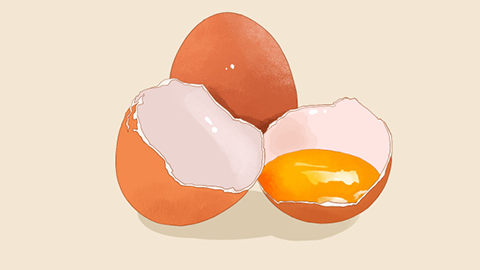Which is more nutritious, egg white or egg yolk?
There is generally no basis for the claim of "which is more nutritious between egg white and egg yolk," as both the egg white and egg yolk are usually nutritious. It is recommended to consume them in appropriate amounts according to individual circumstances.

Egg whites contain a high amount of protein, almost no fat, and the protein quality is high and easily absorbed by the human body. Therefore, for individuals needing to increase protein intake while wanting to control fat consumption, such as fitness enthusiasts and people trying to lose weight, egg whites are a better choice. Egg whites contain no cholesterol or fat, making them more suitable for patients with cardiovascular and cerebrovascular diseases and obese individuals.
Egg yolks contain a considerable amount of protein, lecithin, cholesterol, minerals, fatty acids, vitamins, and numerous bioactive substances. Egg yolks are rich in iron and are one of the sources of iron for patients with iron-deficiency anemia. However, their cholesterol content is relatively high, and excessive intake may increase the risk of heart disease, atherosclerosis, and other diseases, making them particularly unsuitable for patients with cardiovascular and cerebrovascular diseases.
Both egg yolks and egg whites are nutrient-rich food sources, each with unique nutritional value and suitable populations. In daily diet, it is recommended to reasonably combine egg yolks and egg whites to fully utilize the nutritional advantages of both.






